According to delegate Bui Hoai Son - Hanoi National Assembly Delegation, in recent years, culture has been increasingly recognized as the spiritual foundation of society and the endogenous strength of sustainable development. Therefore, this amendment to the Law on Corporate Income Tax is not only an adjustment to an economic law, but also an opportunity to institutionalize the Party's major views on promoting fundamental areas, including culture.
Assessing the impact of this Draft Law on the cultural sector - from the perspective of policy, practice and development prospects in the coming time, the delegate said: First of all, it is worth noting that the Draft has made positive progress in showing concern for culture through the system of tax exemption, reduction and incentive regulations.
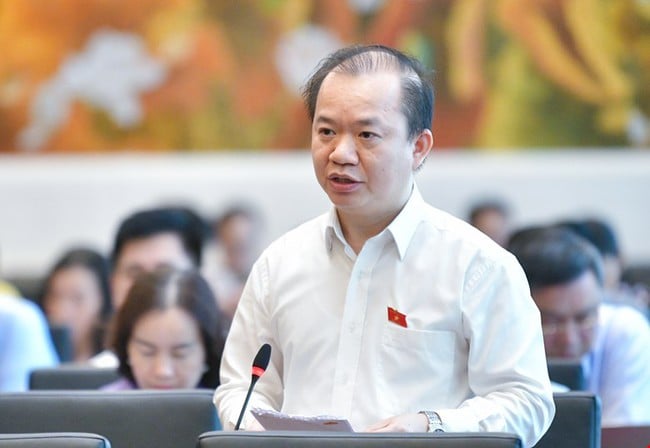
Delegate Bui Hoai Son - National Assembly Delegation of Hanoi City
Accordingly, sponsorships for education, culture, arts, social activities, etc. are identified as tax-exempt income. These sponsorship expenses, if meeting the conditions of transparency in documents, are also considered reasonable expenses. This is an important improvement that helps encourage businesses to accompany the State in caring for the spiritual life of the people.
Delegates cited that recent practices have shown the increasingly clear role of the private sector in the cultural field. Programs such as "Dep Viet", "Lang truc Viet", the concert series "Anh trai vu ngan cong gai", "Chi dep dap gio" ... organized by private enterprises not only create a new cultural wave, but also contribute to preserving and reviving traditional values in contemporary life.
"Without the participation of businesses, these initiatives will have little chance of being born," the delegate said.
However, according to delegate Bui Hoai Son, many organizers are still hesitant when sponsoring or spending on culture because they are afraid of complicated tax procedures, or even being excluded from valid expenses due to unclear regulations.
Therefore, the draft of the revised Corporate Income Tax Law this time affirms that funding for culture is a reasonable expense, deductible if qualified, is a timely move. It is not only reasonable in terms of tax techniques, but also demonstrates consistency in policy: opening up social capital flows to invest in culture, especially in the context of limited public resources.
In addition, the draft also provides many important incentives for organizations implementing socialization in the cultural field. Non-profit establishments, or those operating in difficult areas, will be exempted from or have their taxes reduced at specific levels. This is the basis for private theaters, cinemas, and cultural centers - which are facing many difficulties after the pandemic - to have more conditions to maintain and develop.
"It is also important to emphasize that, in the context of strong digital transformation, tax exemption regulations for research, innovation and digital transformation activities in culture are essential. Digitizing heritage, building online performance platforms, developing digital cultural products... are inevitable trends. Projects such as "The Essence of Dao Hoc" at the Temple of Literature - Quoc Tu Giam", or applying AI in the restoration of Hat Xam, Ca Tru... all originate from the need for innovation, but lack financial motivation.
If businesses and organizations are exempted from taxes for those innovation efforts - as the draft proposes - there will be more motivation for long-term investment," the delegate shared.
However, according to delegate Bui Hoai Son, in order for the policies to be effectively implemented, there needs to be clear and transparent implementation guidelines soon, especially regarding the criteria for determining the types of cultural activities that are exempt from tax, conditions for deductible sponsorship documents, etc.
Some new cultural fields such as art video games, digital music, digital content creation on cross-border platforms, etc. have not yet been clearly established in the preferential industry system.
"Therefore, I recommend that the concept of "cultural industry" in the Law and guiding documents should be expanded to cover cultural industries, especially those with the potential to make great contributions to the knowledge economy.
It should also be noted that the majority of businesses operating in the cultural sector today are small and medium-sized enterprises, creative startups, with small investment capital but rich in ideas and creative capacity. If tax incentives are only given based on large capital criteria and projects with a scale of thousands of billions, we will inadvertently forget the creative "seeds" - factors that can become national cultural brands in the future," the delegate expressed.
Source: https://bvhttdl.gov.vn/mien-thue-cho-hoat-dong-nghien-cuu-doi-moi-sang-tao-va-chuyen-doi-so-trong-van-hoa-la-rat-can-thiet-20250512142520245.htm


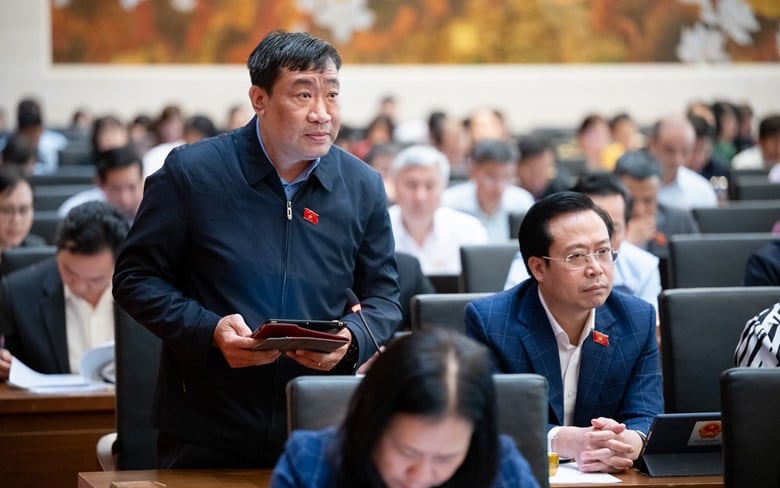

![[Photo] Prime Minister Pham Minh Chinh receives Ambassador of the French Republic to Vietnam Olivier Brochet](https://vphoto.vietnam.vn/thumb/1200x675/vietnam/resource/IMAGE/2025/5/13/f5441496fa4a456abf47c8c747d2fe92)
![[Photo] President Luong Cuong attends the inauguration of the international container port in Hai Phong](https://vphoto.vietnam.vn/thumb/1200x675/vietnam/resource/IMAGE/2025/5/13/9544c01a03e241fdadb6f9708e1c0b65)
![[Photo] Prime Minister Pham Minh Chinh meets with US business representatives](https://vphoto.vietnam.vn/thumb/1200x675/vietnam/resource/IMAGE/2025/5/13/5bf2bff8977041adab2baf9944e547b5)












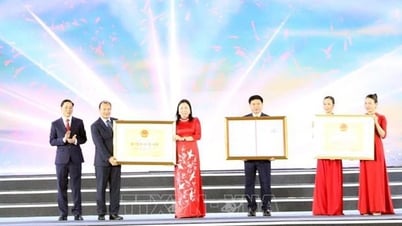






















































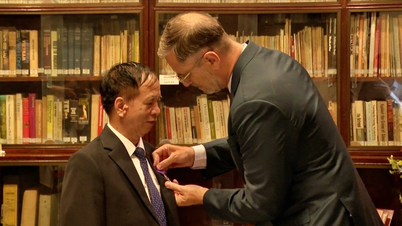


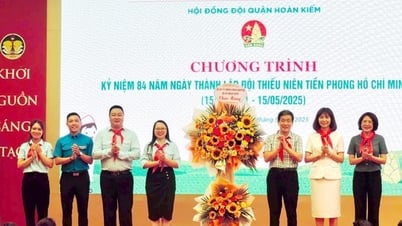











Comment (0)